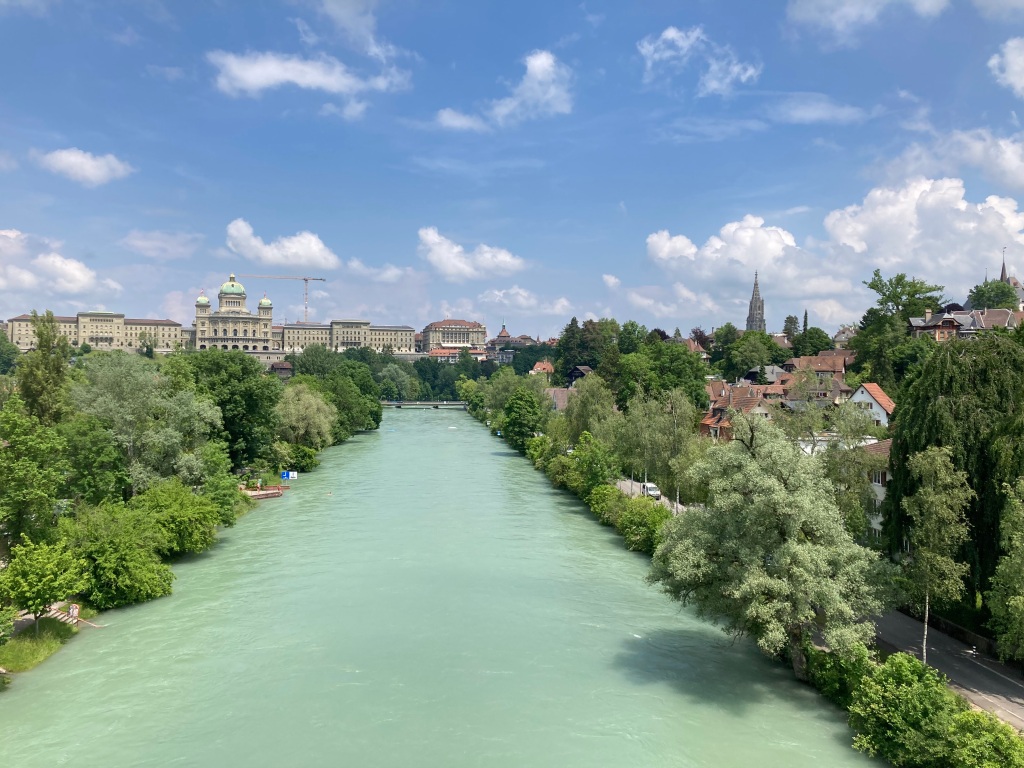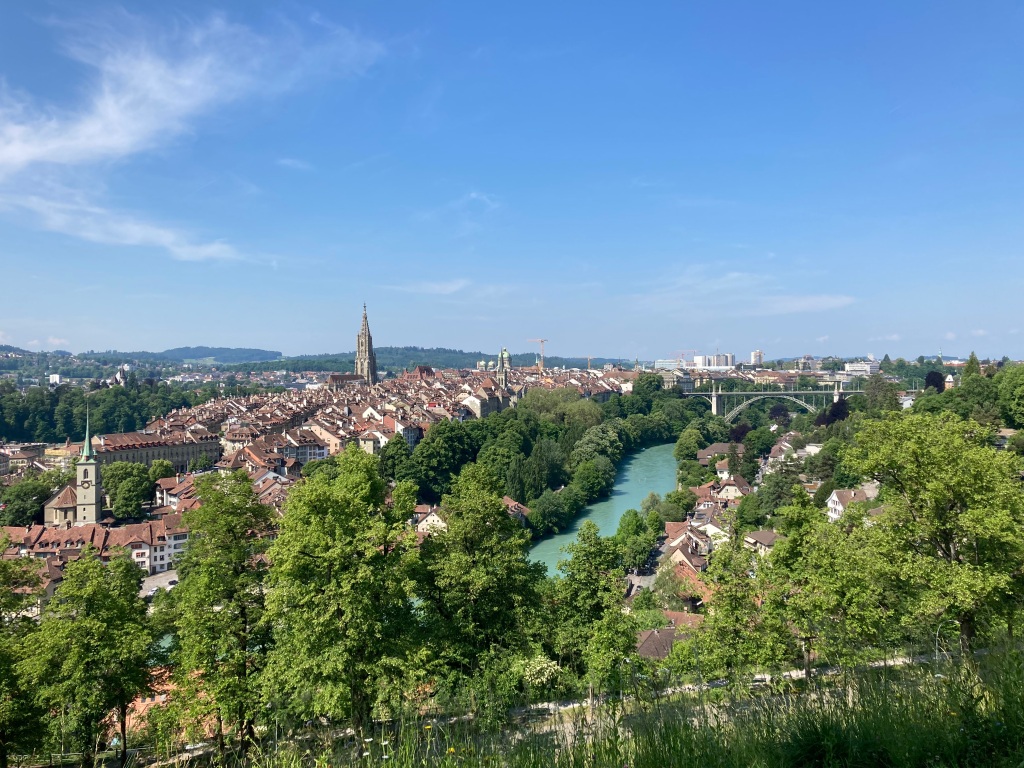By Alicia Gutting
Like so many other researchers, I experienced a slowdown in my research activities over the last two years. Archive visits could no longer be planned well in advance, but had to happen spontaneously and even then, it was not certain that I would actually be able to travel. Combined with other commitments, such as teaching, this presented me with greater difficulties than I would have liked. Summer 2021 offered one of the rare chances to actually travel to Germany and visit archives for my PhD research on the Nuclear Rhine. My plan was to go to the Generallandesarchiv in Karlsruhe and the Staatsarchiv in Freiburg. Afterwards, I wanted to head to Switzerland to visit the Federal Archives in Bern.
Shortly before my departure, however, the government of Baden-Württemberg introduced new corona restrictions that made it difficult for me to visit the two archives in Baden-Württemberg. So, I changed my plans at short notice and ordered digitised documents online and books from the library, which are not so easily accessible in Sweden.
My visits to archives so far, at least in Germany, have followed a fairly similar pattern. I ordered many thick folders, boxes and files, which I went through at top speed and handwrote on a form what I considered worth copying. This way of working was not always pleasant, but usually could not be avoided. There are many documents on the nuclear history of the Rhine and when ordering archival materials, it is not always clear whether there are relevant documents in them. Also, in many archives it is not allowed to photograph documents that are younger than 100 years.
I then submitted the form and so ordered digital copies, which were made available to me after about a month and after paying a substantial invoice. The fact that these archives now offered the service of ordering digital copies online made my work much easier, even if there were differences between the individual archives. One archive provided me with the digital copies within a very short time and the staff even took the trouble to search for documents on certain topics from the records. Another archive was unable to do this due to a lack of staff. Even though this reasoning seemed plausible to me, I asked myself how archival research would be organised in the future if one cannot always just hop on a plane or train like that, for whatever reason.
I basically got the answer to my question while I was doing my research in Switzerland. The Federal Archives in Bern are already digitising entire collections of files and doing so free of charge. Some of the archival documents relevant to me had already been digitised, while others I ordered as digital copies. However, since I was looking for materials for several articles and this required me to go through many files and folders, I set off for Switzerland. In contrast to Baden-Württemberg, the requirements in Bern were not quite as strict and I was looking forward to two intensive weeks in the archive.

For me, this was my first visit to Bern and what particularly impressed me was the connection between the river Aare and the city. On the one hand, the Aare flows right through it, but not as a strongly tamed little river, but as a watery stream that also had something impetuous about it.

On the other hand, the turquoise colour of the river was reflected in the city centre, which is uniformly built of the striking green sandstone of the Bernese hinterland. The uniformity of the city centre put me off at first. Especially because the houses were decorated with national flags and in combination with the somewhat gloomy sandstone, the city centre had something oppressive about it.

The swift Aare, on the other hand, lightened the mood. What struck me most was the view of the city from the Rose Garden. It was only here that I realised how green and almost natural Bern actually is. From Stockholm’s perspective, of course, this is nothing new. However, since I also lived in Vienna for more than ten years and this city hides its greenery almost entirely in backyards, I was still somewhat impressed. Moreover, I was in Bern in June, which was not inferior to high summer in terms of temperature, and the cool breeze blowing through the city by the river and the greenery made the heat not quite so unbearable.

All in all, I have to say that my personal archival odyssey nevertheless ended on a positive note and I got something like an idea of how future archival work could be organised.